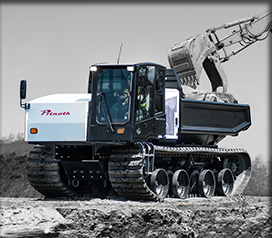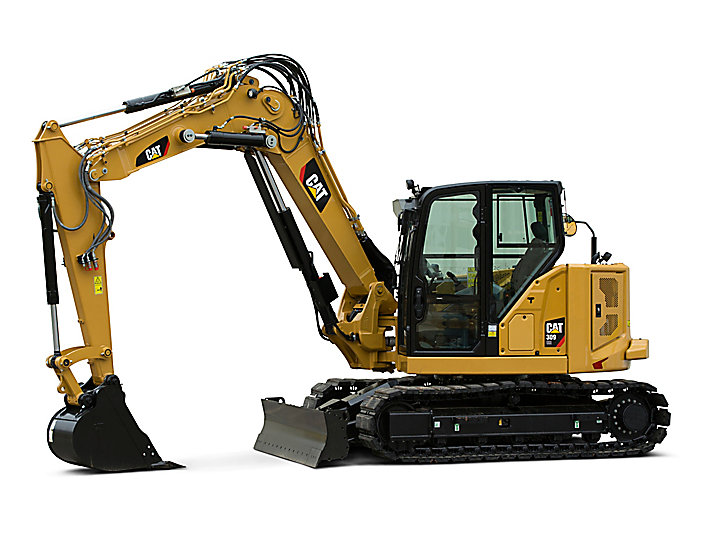Superior rentals squeeze tools: complete usage guide for technicians
A Comprehensive Guide to the Numerous Types of Oil Field Equipment and Pipeline Equipment Available
The oil and gas sector depends greatly on specific tools for reliable removal and transport. Numerous kinds of equipment, from drilling rigs to tank, play important functions in this complicated procedure. Each tool serves unique functions that contribute to total functional success. Recognizing these parts is vital for any individual entailed in the field. As the sector develops, so too do the innovations that sustain it. What developments are on the perspective?

Drilling Rigs: The Foundation of Oil Exploration
Drilling rigs act as the vital equipment in the domain of oil exploration, making it possible for companies to accessibility hydrocarbon reserves buried deep under the Earth's surface area. These rigs come in different kinds, including land rigs, offshore rigs, and mobile systems, each made to operate in certain settings. Geared up with innovative technology, drilling rigs can permeate geological developments with precision, making sure reliable resource extraction. The architectural honesty and operational capabilities of these rigs are important, as they have to withstand extreme conditions and considerable stress. The selection of an exploration gear impacts the total task price and timeline, making it an important consideration for oil companies seeking to maximize their expedition initiatives and make best use of performance in their procedures.
Pumps: Crucial for Liquid Activity
In the oil removal procedure, the function of pumps is considerable, promoting the movement of fluids throughout different phases of manufacturing. Pumps are vital for delivering unrefined oil, water, and other liquids from underground tanks to the surface and then through pipelines to refineries. They come in various types, consisting of centrifugal, favorable variation, and completely submersible pumps, each serving certain objectives based on the liquid qualities and functional requirements. Centrifugal pumps are generally made use of for their effectiveness in high-flow applications, while favorable variation pumps excel in taking care of viscous fluids. The option of pump impacts total efficiency, functional security, and upkeep expenses. Correct choice and upkeep of pumps are crucial for optimizing manufacturing and minimizing downtime in oil area operations.
Shutoffs: Managing Circulation and Pressure

Valves play an essential function in taking care of the flow and pressure of fluids within oil areas and pipelines. Different kinds of shutoffs offer distinctive applications, each designed to satisfy details features fundamental for efficient operation - Superior Oilfield pipeline equipment rentals. Comprehending the qualities and uses of these valves is vital for optimizing system performance and safety
Kinds of Valves
Important elements in oil field procedures, shutoffs play a critical duty in regulating the circulation and pressure of fluids within pipelines and equipment. Numerous kinds of shutoffs are utilized to meet the diverse needs of oil and gas manufacturing. Usual types include gateway shutoffs, which supply a straight-line flow and minimal stress decline; globe valves, recognized for their strangling capacities; and sphere shutoffs, recognized for their quick on/off control. In addition, check shutoffs stop backflow, while butterfly valves offer a light-weight option for controling flow. Each shutoff kind is created with certain materials and setups to endure the rough problems commonly discovered in oil fields, making sure dependability and efficiency in procedures. Recognizing these kinds is vital for effective system monitoring.
Valve Applications and Features
While various kinds of valves serve distinctive purposes, their key applications rotate around controlling circulation and stress within oil and gas systems. Valves such as gate, world, and ball shutoffs regulate liquid motion, ensuring peak efficiency and security. Gateway valves are typically made use of for on/off control, offering marginal circulation resistance. Globe valves, on the other hand, deal exact circulation guideline, making them appropriate for strangling applications. Ball shutoffs are favored for their fast operation and limited sealing capacities. Additionally, stress relief valves are essential for avoiding system overpressure, securing equipment stability. On the whole, the appropriate selection and application of shutoffs boost operational effectiveness, making certain the dependable transport of oil and gas with pipes and handling facilities.
Compressors: Enhancing Gas Transport
Compressors play a critical role in the efficient transport of gas, making certain that it moves efficiently with pipes over cross countries. These gadgets raise the pressure of gas, allowing it to conquer rubbing and altitude changes within the pipeline system. Additionally, compressors help with the balancing of supply and demand, accommodating fluctuations in consumption and production rates. Various sorts of compressors are used in the industry, including centrifugal, reciprocating, and rotary screw compressors, each offering distinct advantages based on the operational requirements. Regular maintenance of these compressors is vital to maximize efficiency and minimize downtime, ultimately adding to a reliable gas transport network. Their important feature highlights the importance of compressors in the total oil and gas framework.
Storage Tanks: Safe and Effective Fluid Monitoring
Reliable transport of all-natural gas counts on different supporting systems, among which is the appropriate management of tank. These containers play a crucial function in safely having fluids, ensuring that functional efficiency is kept while lessening environmental threats. Created from long lasting materials, they are designed to stand up to high stress and destructive elements. Appropriately sized and strategically situated, storage tanks promote the smooth flow of all-natural gas and various other liquids, avoiding traffic jams in supply chains. Regular maintenance and surveillance are necessary to spot leakages or structural concerns, promoting security and conformity with regulatory requirements. Inevitably, the effective administration of storage space tanks is vital for the general honesty and reliability of the oil and gas market's liquid handling systems.
Pipeline Equipments: Infrastructure for Transportation
Pipeline systems work as the foundation of the oil and gas industry, helping with the effective transport of hydrocarbons over vast distances. These systems contain numerous components, consisting of pipes, valves, pumps, and compressors, all thoroughly designed to ensure smooth circulation. The materials utilized in pipeline building and construction, frequently steel or high-density polyethylene, are chosen for longevity and resistance to corrosion. Pipeline networks can span across land and water, connecting production sites to refineries and distribution. Furthermore, advanced innovation makes it possible for real-time surveillance of circulation prices and stress degrees, enhancing operational effectiveness. The calculated positioning of these pipes decreases environmental main water line impact while maximizing resource availability, therefore playing an important function in conference power demands around the world.
Safety And Security Equipment: Ensuring Worker and Environmental Protection
The operation of pipeline systems, while necessary for power transport, likewise offers significant safety challenges for employees and the environment. Safety and security devices plays a considerable role in minimizing these dangers. Personal reference safety devices (PPE) such as helmets, handwear covers, and non-slip footwear safeguards workers from physical dangers. Furthermore, gas discovery systems monitor for leakages, guaranteeing that harmful materials do not position a threat to employees or the surrounding ecological community. Emergency closure systems are critical for swiftly halting operations throughout a dilemma, protecting against prospective disasters. Spill control products, including absorbents and obstacles, are fundamental for decreasing environmental effect. In general, spending in all-inclusive safety tools is vital for maintaining functional integrity and securing both workers and the setting in the oil and gas industry.

Often Asked Inquiries
How Do I Choose the Right Oil Field Equipment for My Job?
Picking the right oil field devices includes reviewing project specifications, budget restrictions, and functional needs. Take into consideration factors such as equipment reliability, compatibility with existing systems, and the supplier's credibility to assure peak efficiency and additional reading safety and security.
What Are the Upkeep Needs for Oil Field Equipment?
Upkeep demands for oil field devices include regular examinations, lubrication, and prompt fixings. Operators needs to likewise abide by supplier standards, screen efficiency metrics, and guarantee compliance with security guidelines to boost long life and performance.

Exactly How Can I Make Sure Conformity With Environmental Laws?
To assure conformity with ecological regulations, business need to perform normal audits, implement best practices, buy training, preserve appropriate documents, and remain updated on regulations (Superior Oilfield Rentals). Partnership with environmental agencies can likewise improve adherence to guidelines
What Is the Ordinary Life-span of Pipeline Equipment?
The ordinary life-span of pipeline tools commonly varies from 20 to half a century, depending on factors such as material high quality, environmental problems, and upkeep methods. Regular inspections can substantially influence durability and operational effectiveness.
Exactly how Do I Safely Carry Oil Field Equipment to Remote Locations?
Delivering oil area equipment to remote locations requires careful planning, consisting of route assessment, securing permits, making use of ideal cars, and making sure safety and security protocols are complied with. Appropriate training and interaction amongst crews are essential for effective transportation.